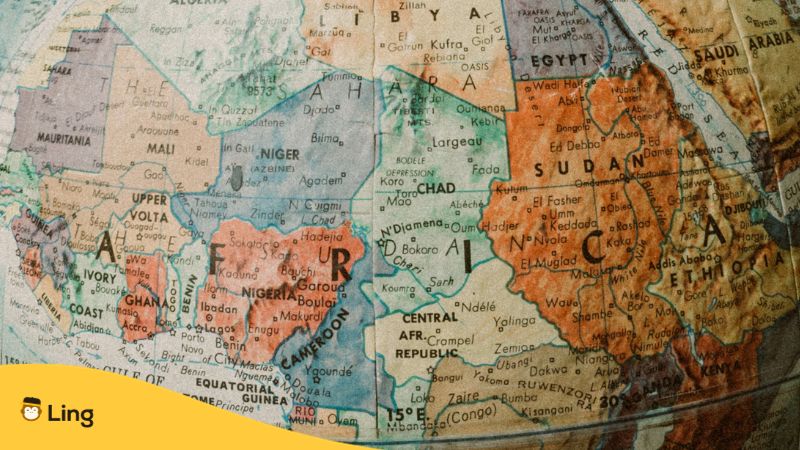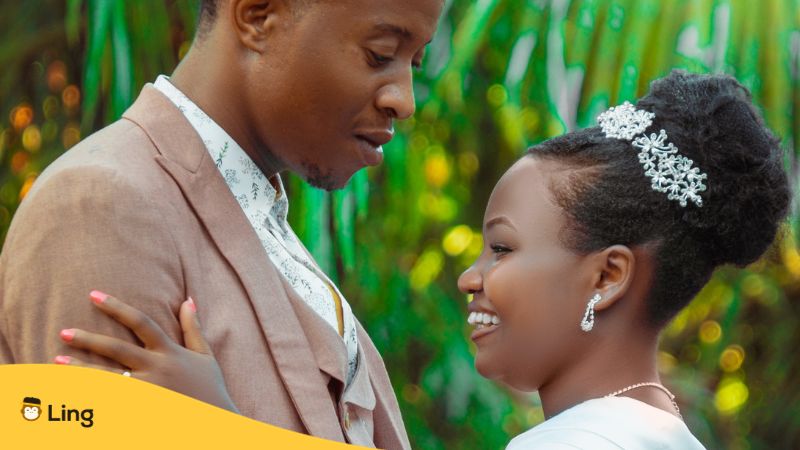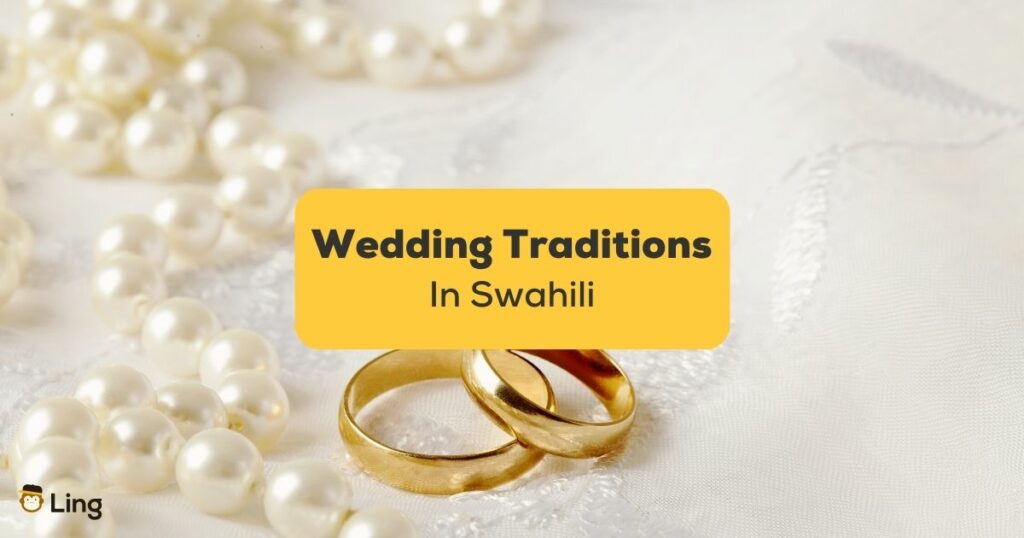Weddings culminate in a culture’s beautiful traditions, usually passed down hundreds of years to the next generation. Swahili, or Kiswahili, is more than a language spoken by diverse groups along the East African coast. Weddings along the Swahili Coast are filled with stunning and historical traditions!
Let’s learn more about Swahili wedding traditions and how to be invited! Whether you’re a language lover, a culture lover, or simply curious about the interesting and beautiful customs of the Swahili people, then keep reading!
Swahili, spoken by millions along the East African coast, is a language rich in folklore and tradition being passed down each generation. “Karibu katika ulimwengu wa harusi za Kiswahili!” (Welcome to the world of Swahili weddings!) Let’s learn Swahili with this amazing tradition!

Historical Roots Of Swahili Wedding Traditions
Swahili culture is a mix of East African customs and the influences of traders who ventured to the Swahili Coast looking for fortune. The Swahili Coast’s historical interactions can be traced back to the 1st century AD!
Because of its location along the Indian Ocean trade routes, Swahili culture has been enriched by interactions with Arabic, Persian, Indian, and other global cultures. These influences have shaped its unique wedding rituals, making it somewhat of a melting pot among unions.
If you want to immerse yourself further into Swahili culture, why not start with the basics? Check out these 10 basic Swahili phrases, to learn, for instance, how to say ‘How are you’ in Swahili for a foundational grasp of the language.
1. Engagement – Kupinga Hatamu
Among many Swahili-speaking communities, the wedding journey begins with “Kupinga Hatamu,” the engagement ceremony. In this ceremony, the groom’s family visits the bride’s family with gifts, symbolizing the intention to marry. Families are a big part of the African wedding customs and wedding parties in Swahili culture.
The negotiation and acceptance of the bride price (“mahari”) are an essential part of this event. “Mahari” often includes money, jewelry, and Swahili clothing! The groom’s family must demonstrate their commitment and ability to provide for the future bride. Though it is traditional among today’s standards, it shows respect for the bride and groom’s commitment to each other and their children!
2. The Wedding Ceremony – Harusi
The main event, “Harusi,” is a joyous party! Swahili weddings are known for their colorful Swahili attire, with brides and grooms often wearing traditional Swahili clothing to the traditional wedding ceremony.
The bride’s intricate henna patterns on her hands and feet symbolize beauty and purity, as well as the wedding dress. The ceremony is filled with lively music, dancing, and heartfelt speeches from family and friends. Friends and family gather to celebrate the union. Swahili proverbs and poetry are recited, emphasizing the importance of family, tradition, community, and acknowledgment of the past.
3. Feast Of Peace – Karamu Ya Amani
Following the wedding ceremony, the “Karamu ya Amani” is a lavish feast that serves two main purposes. It symbolizes the couple’s commitment to sharing their lives and prosperity. Swahili food culture is very prominent in a traditional Swahili wedding.
Traditional Swahili dishes like “pilau” (spiced rice), “biryani” (a fragrant meat and rice dish), and “mandazi” (doughnuts) are served. Yum! Sharing Swahili food is considered an act of love, unity, and a promise to nourish each other throughout marriage life.

4. Uniting Families And Communities
Swahili weddings are more than just a union of two individuals. They are a union of families and communities. This communal approach is a significant part of the collectivist culture, emphasizing the importance of support and solidarity within the society.
The Swahili saying “Mvumilivu hula mbivu” (patience yields ripe fruits) reflects the values of endurance, perseverance, and the understanding that a successful marriage requires time and effort!
Three Insightful Aspects Of Swahili Wedding
Are you curious about the specifics of some distinctive African wedding traditions? From attire to coconut milk, here are three fun facts you never knew about Swahili weddings!
1. Kofia – A Symbol Of Tradition
During Swahili weddings, it’s common for the groom to wear a distinctive beautiful cap known as a “kofia.” This cap is often intricately embroidered and symbolizes his readiness for marriage. It’s a significant part of the groom’s attire, you’ll see it if you ever attend a Swahili wedding.
2. The Magical Role Of Coconut Milk
Who would have thought that coconut milk plays such a unique role in Swahili wedding traditions! The bride and groom may share a drink of fresh coconut milk during the ceremony, signifying their union’s nourishing and refreshing nature. How unique and refreshing!
3. Bridal Procession On A Dhow
In certain coastal regions, some Swahili weddings feature a “dhow”, a traditional wooden sailing boat, for the bridal procession. The bride arrives at the ceremony on a beautifully decorated “dhow”, making for a spectacular entrance for the wedding reception.
Can you imagine showing up to your wedding on a boat? This touch highlights the Swahili people’s deep connection to the sea.

Wrapping Things Up
Swahili traditional weddings celebrate love, culture, and, most importantly, the union of families. The customs and rituals reflect the Swahili people’s interesting history, influenced by various cultures worldwide.
As you continue your journey to learn Swahili, understanding these traditions can deepen your appreciation for the language and culture. And if you’re lucky enough to be invited to a Swahili wedding, why not learn Swahili greetings to wish the newly weds. Have fun watching these beautiful traditions come to life!
Learn Swahili With Ling!
As you get deeper into the world of Swahili wedding traditions, remember that the Swahili language is a key part of their culture. If you’re interested in learning more Swahili vocabulary and phrases, look no further than the Ling app!
It’s a language-learning app designed to help learn niche languages like Swahili. Games, interactive lessons, and daily practice will help you smash your language goals! Download the free Ling app today from the App Store and Play Store.





























































